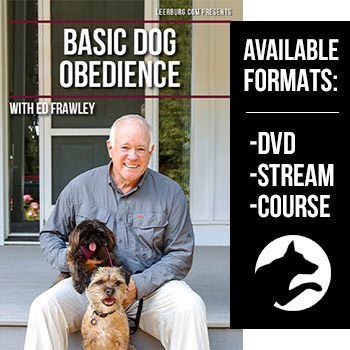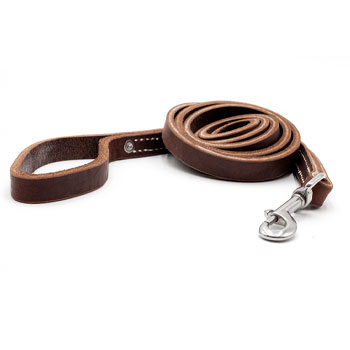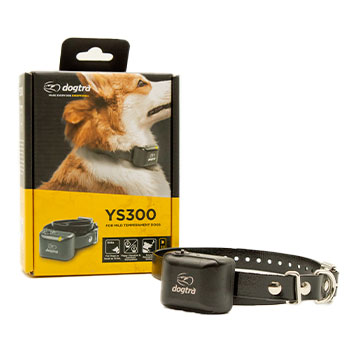May 20, 2011
What do you do with a dog with severe separation anxiety?
Full Question:
Hi Ed,I am a professional dog trainer of over 20 years here in Morrison, Colorado. I specialize in behavior issues, mostly aggression rehabilitation and training owners. I have read every page and every article regarding dog aggression on your site and I am so happy to read that you are also a 'reality' trainer. No fluff, no clickers, no treats, etc., just real training/behavior modification. I also send many of my clients to your site, since I just haven't taken the time that you have to put so much information in writing.
The reason for my email is that I haven't seen any information on severe separation anxiety.... or maybe I'm just not looking in the right place. Do you have any emails/articles/information on that subject? I am curious what you do to deal with a dog that has extreme separation anxiety. I know what I do and have done for the last 20 years and it has always worked, until this one particular dog. I would be more than happy to give you all of the details, the dog's history, etc., if you wish, but I would be so very appreciative if you could let me know if you have some information on serious separation anxiety.
Thank you so much in advance for your time and effort.
Suzi~

 Cindy's Answer:
Cindy's Answer:
Separation anxiety can be a pain. The fact is the dog has ghosts in its head and needs to learn to control it. In the end it must be trained to a level that it respects the owner's commands more than it fears the ghosts.
We recommend people condition the dog to the crate – and crate the dog 30 minutes before leaving and not let it out until 30 minutes after they return home. If the dog becomes a butt head in the crate we would use low level stimulation from a remote collar.
I do need to mention that while I completely agree with corrections in training (and you can read the article I wrote titled THE THEORY OF CORRECTIONS IN DOG TRAINING) I also agree with using markers and food rewards. It is a huge mistake to not use both in your training. I would recommend that you consider getting my Basic Dog Obedience DVD and then incorporate these methods in your training. The bottom line is it will help your business.
The fact is there is only 4 ways to motivate a dog:
1- food
2- a prey item (toy)
3- handler reward (less than 2% of dogs will respond to this in a long term training program)
4- force
To say you don’t use food or prey puts you at a severe disadvantage and means you need to expand your range of training experience. If you want an eye opener – get the DVD I did titled BUILDING DRIVE AND FOCUS.
We recommend people condition the dog to the crate – and crate the dog 30 minutes before leaving and not let it out until 30 minutes after they return home. If the dog becomes a butt head in the crate we would use low level stimulation from a remote collar.
I do need to mention that while I completely agree with corrections in training (and you can read the article I wrote titled THE THEORY OF CORRECTIONS IN DOG TRAINING) I also agree with using markers and food rewards. It is a huge mistake to not use both in your training. I would recommend that you consider getting my Basic Dog Obedience DVD and then incorporate these methods in your training. The bottom line is it will help your business.
The fact is there is only 4 ways to motivate a dog:
1- food
2- a prey item (toy)
3- handler reward (less than 2% of dogs will respond to this in a long term training program)
4- force
To say you don’t use food or prey puts you at a severe disadvantage and means you need to expand your range of training experience. If you want an eye opener – get the DVD I did titled BUILDING DRIVE AND FOCUS.
82% (9 out of 11)
respondents found this answer helpful


Can't find what you're looking for?








